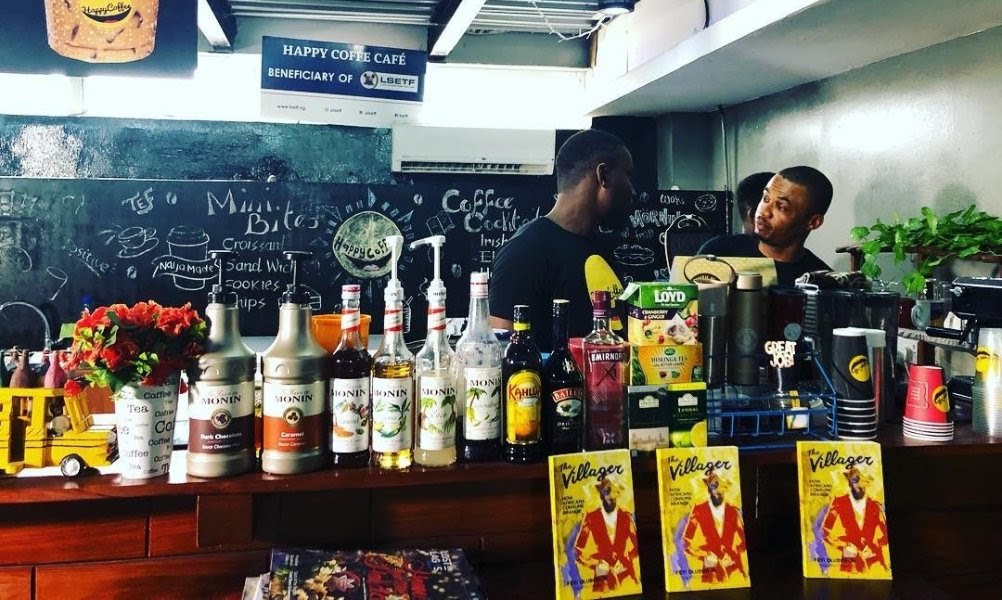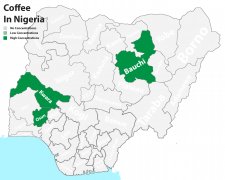Nigerian Coffee Trade and Marketing the impact of Nestl é instant on Nigerian coffee consumption
Coffee Trade and Marketing in Nigeria
Unlike major coffee producing countries in Africa, such as Ethiopia and Kenya, Nigeria does not have any type of centralized coffee exchange and no formal coffee trading system.
In addition, a small number of buyers of Nigerian coffee are often unable to promise to buy the entire harvest of a farm, which can only lead to further instability. The situation is further complicated by the lack of government support for the coffee industry.
During the harvest season, the buyers (usually on behalf of large companies) visit the farm and buy some coffee. The price farmers get is by no means sustainable, but ultimately irresistible.
Dr. Balbir Singh is an agronomist living in Abuja, Nigeria. He said that although more than 800 hectares of Arabica coffee farms are scattered across Nigeria, the lack of government involvement is not a good sign.
"this makes the industry unsuitable for many small farmers. The small area of coffee production means there is no meaningful tonnage. You need a lot of money to have a real impact. "
Nigeria's lack of any type of national coffee policy is one of the main challenges that hurt local coffee farmers. Even the country's larger coffee companies import beans from other neighboring countries to produce instant coffee-which is still popular with domestic consumers. In the end, the lack of commitment of large coffee companies has a negative impact on the whole value chain.
At present, no national coffee institution or farmers' association has been established in Nigeria.

Dr Singh added: "the lack of export buyers hurts farmers the most. Most agricultural products are wasted because there are no buyers to harvest from farmers. "
He also pointed out that there were only a small number of factories and washing stations in the country, many of which he said were poorly managed. 'This can lead to poor quality of coffee, further discouraging potential buyers,'he said.
How is coffee consumption in Nigeria?
Although Nigerian consumers have historically drunk tea, cocoa and instant coffee, things are beginning to change.
The princess said Lagos had a high demand for good coffee. The problem, she says, is that access to quality products is limited.
Another problem facing Nigerian coffee consumers is the cost of coffee. Cheap instant coffee is still the only coffee product that is really available on the market.
Most of the coffee sold in Nigeria is soluble, which is popular in mobile coffee kiosks in major cities, including Lagos.
These kiosks usually sell a cup of instant coffee for 100 Nigerian naira (about $0.24).
This means that Nigeria's coffee industry has been dominated by one brand for some time: Nestle Coffee.

Nestle Coffee has 60 per cent of the Nigerian coffee market, according to the International Coffee Organization (ICO). The company's products are produced in neighboring C ô te d'Ivoire and are made from non-Nigerian coffee.
"most of the coffee Nigerians drink is imported," the princess explained. "about 95% of the consumption here comes from other countries. This leads to a lot of waste from local farmers.
"We don't mind drinking coffee from Kenya or elsewhere, because Nigeria is a large country with a large population. If we don't grow coffee, we won't mind drinking imported coffee, but the fact that we do grow coffee is wrong. "
Nonetheless, Princess does note that Nigeria's coffee culture is evolving, if slowly. Independent cafes are springing up, some of which are producing ready-to-drink (RTD) drinks.
She added: "the local coffee roasting industry is underdeveloped. There is only one major commercial roaster, Kaldi Coffee. Then there are also some small-scale bakers in other regions. "
The princess also believes that Nigerians need to know more about coffee shop culture in order to fully reap the rewards from the revival of the coffee industry. She wants people to know how to filter coffee and how to use French presses so that they can better enjoy locally grown coffee.
Before that, however, she said local entrepreneurs had no interest in their products at all. 'This is something that needs to be changed urgently, 'she said.
Important Notice :
前街咖啡 FrontStreet Coffee has moved to new addredd:
FrontStreet Coffee Address: 315,Donghua East Road,GuangZhou
Tel:020 38364473
- Prev

Flavor and taste characteristics of Arabica coffee beans in Nigeria and coffee bean producing countries in Africa
Nigeria Arabica Coffee production although Robusta coffee accounts for most of the country's coffee, a small number of small farmers in Nigeria have begun to grow higher quality Arabica coffee. However, due to lack of awareness, limited market access and very small harvests, there is little reason to grow it. Arabica coffee is grown only in two states: the Kros River and Talaba. According to one
- Next

How long will the coffee beans last? The natural expiration date of coffee? Direct light of heat and water accelerates coffee deterioration
How long will the coffee beans last? Have they gone bad? Although we don't want to admit, yes, the coffee has gone bad. The type of beans you buy and the way you store them will determine how quickly this happens. Whole beans and pre-ground coffee powder have different shelf life, and environmental factors will also affect the life expectancy of coffee. Keep reading to see when the coffee goes bad and the external aspects that speed up the process
Related
- Detailed explanation of Jadeite planting Land in Panamanian Jadeite Manor introduction to the grading system of Jadeite competitive bidding, Red bid, Green bid and Rose Summer
- Story of Coffee planting in Brenka region of Costa Rica Stonehenge Manor anaerobic heavy honey treatment of flavor mouth
- What's on the barrel of Blue Mountain Coffee beans?
- Can American coffee also pull flowers? How to use hot American style to pull out a good-looking pattern?
- Can you make a cold extract with coffee beans? What is the right proportion for cold-extracted coffee formula?
- Indonesian PWN Gold Mandrine Coffee Origin Features Flavor How to Chong? Mandolin coffee is American.
- A brief introduction to the flavor characteristics of Brazilian yellow bourbon coffee beans
- What is the effect of different water quality on the flavor of cold-extracted coffee? What kind of water is best for brewing coffee?
- Why do you think of Rose Summer whenever you mention Panamanian coffee?
- Introduction to the characteristics of authentic blue mountain coffee bean producing areas? What is the CIB Coffee Authority in Jamaica?

